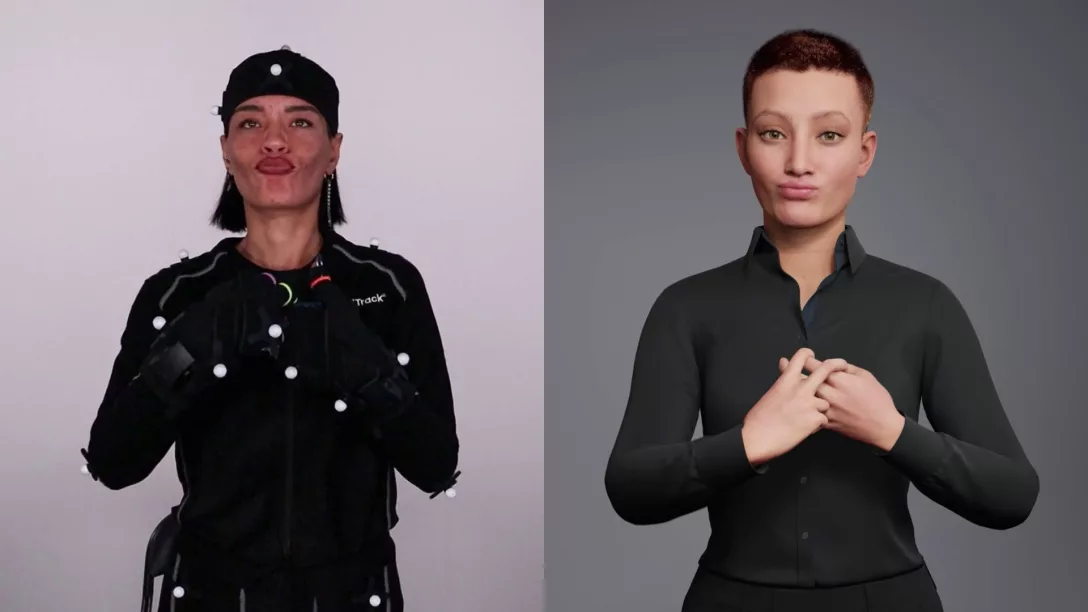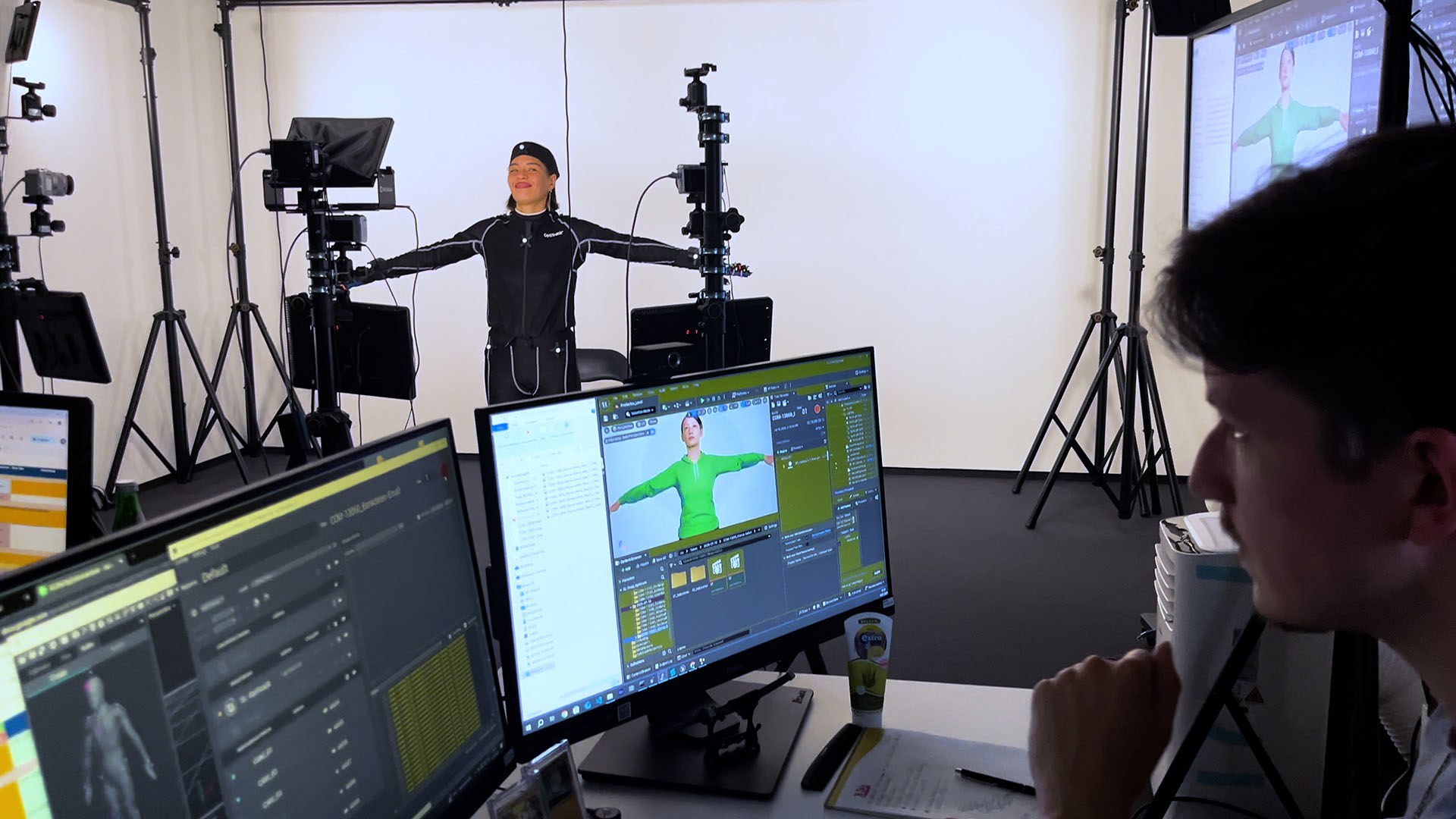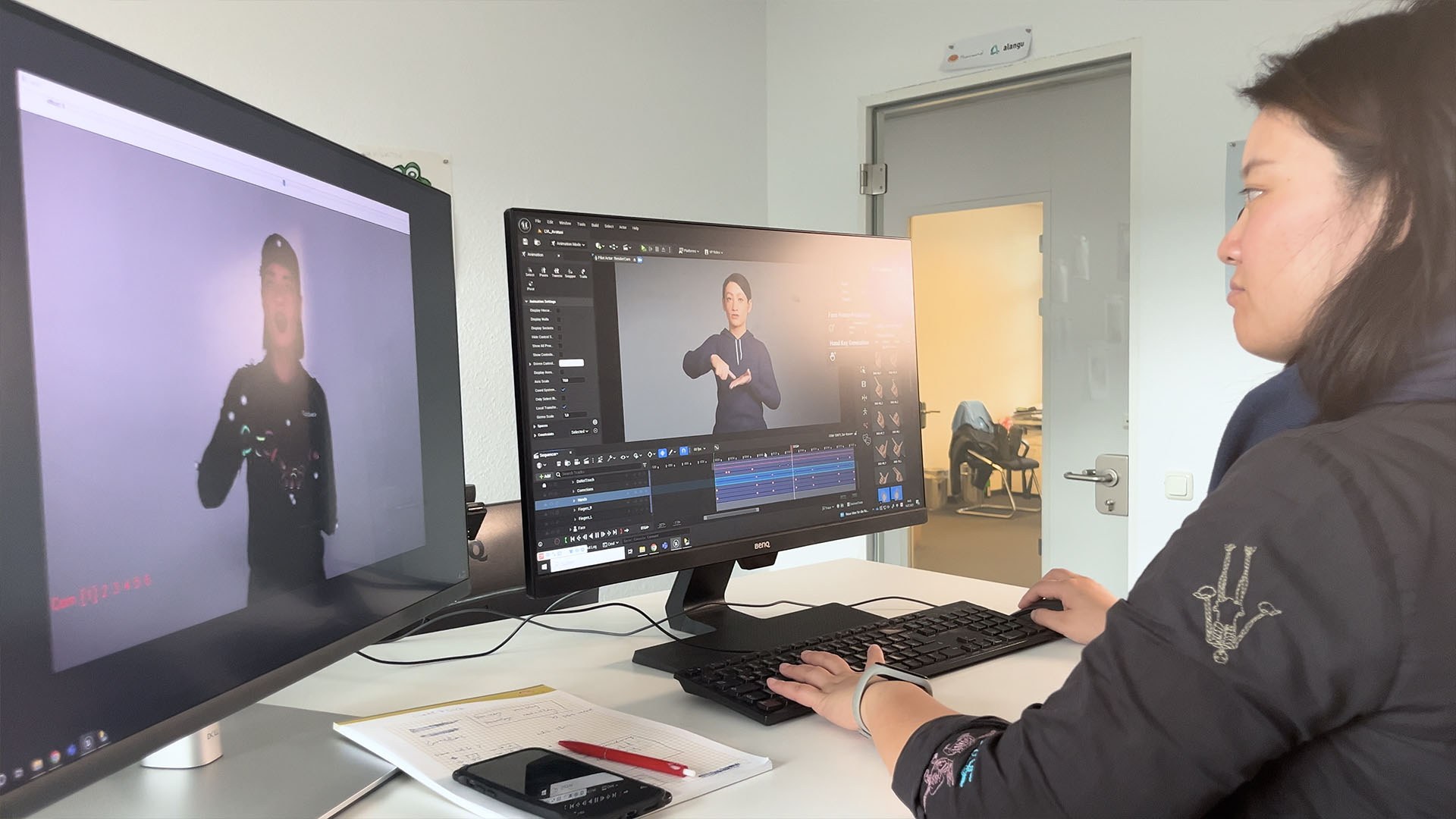alangu welcomes EUD principles on AI and sign language

The “Ethical Framework on AI and Sign Language” published on July 31, 2025, in collaboration with the European Union of the Deaf (EUD) and Prof. Dr. Filipe Venade sets out 15 principles that establish the ethical foundations for AI technologies in relation to sign language.
We at alangu warmly welcome this ethical framework! Our commitment to the EUD was made consciously and explicitly in the course of LinkedIn communication regarding its contribution. The 15 principles provide valuable guidelines for inclusive, participatory, and responsible AI development in collaboration with deaf communities. As developers of AI-based sign language avatars, we at alangu already adhere to many of these principles and incorporate additional aspects as needed.

As a practical and ethical guide for dealing with AI technologies that incorporate sign languages, this groundbreaking resource aims to protect the linguistic, cultural, and digital rights of deaf sign language users in the age of artificial intelligence (AI).
The guide calls for co-creation with deaf communities, respect for cultural identity, robust data protection, and inclusive design based on the Deaf Digital Law.
At alangu, we support this initiative, adhere to it, and take these principles very seriously.

The 15 principles, which we fully support, in brief:
1) The Deaf Digital Law as a fundamental principle safeguards the right of deaf people to unrestricted digital participation and involvement in the digital sphere.
2) AI acts as a tool for inclusion, not as a substitute, because AI should complement sign language interpreters rather than replace them and undermine their indispensable role in human communication situations.
3) Innovation-culture-balance means that technological development goes hand in hand with the preservation and respect of sign language as part of intangible cultural heritage and the promotion of the linguistic and cultural richness of deaf communities.
4) AI should promote empowerment/ self-determination through barrier-free, unrestricted participation of deaf people in all areas of society, guarantee their language rights, and break down barriers.
5) Human rights-oriented design respects the principles of equality, non-discrimination, accessibility, and proportionality in all areas of life, actively prevents harm, and ensures that sign language users are not marginalized in AI design or outcomes.
6) Technologies for deaf people as universal design are based on the experiences of deaf people and offer broader social benefits.
7) Meaningful and sustainable joint development or cooperation with deaf communities ensures that technological innovations make a positive contribution to the present and future of sign languages and meet the needs and values of deaf people.
8) Comprehensive approaches to fairness against all forms of discrimination, such as disability, language, ethnicity, or gender, test and review AI systems to ensure that they do not reinforce or exacerbate existing inequalities.
9) Culturally respectful data collection involving native speakers of national and regional sign languages takes into account linguistic variations, facial expressions, and cultural context in order to include regional, minority, and underrepresented variants, represent them fairly, and avoid algorithmic bias and cultural erasure.
10) Informed and voluntary consent prior to data collection provides clear and transparent information about the purpose, use, and possible reuse of the data, and any use beyond the original purpose requires renewed consent.
11) Respect for original expression and authenticity prevents changes to sign language recordings that distort or misrepresent original meanings or cultural expression.
12) Data from sign languages may only be used to train AI systems if cultural and linguistic integrity is preserved, and protective measures prevent misuse or misrepresentation that could lead to cultural appropriation and damage the legitimacy of AI results.
13) To protect personal and cultural identity, such as names, images, voices, facial expressions, and sign styles, these may only be reproduced, simulated, or cloned by avatars or AI-generated content with the express, prior, and separate written consent of the sign language users.
14) Fair compensation for data use in proportion to the duration, scope, and type of data use in AI systems is specified in transparent agreements with terms of use and duration.
15) AI developers, providers, and operators are accountable and responsible for technical performance and cultural and linguistic appropriateness and are liable for damages resulting from misuse or misrepresentation of sign language data.
Learn more at eud.eu/new-eud-publications-on-artificial-intelligence-and-sign-language
